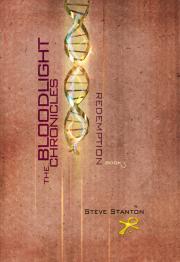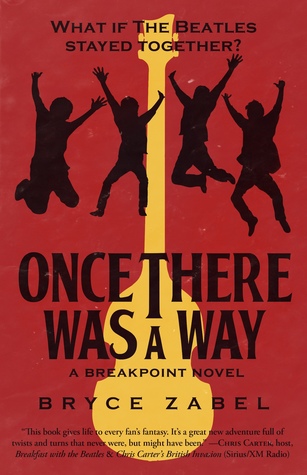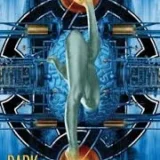
Finding innovative science fiction is getting harder and harder. Sure using the success of others to step further into the future is how we as a society have grown, but aside from a few exceptions, true literary pioneering seems to have slowed to stagnation. Then comes along a series of books from ECW Press called The Bloodlight Chronicles by Steve Stanton (President of SF Canada or Canada’s National Association of Speculative Fiction Professionals) and hope for originality in the genre is revived.
Billed as post-Cyberpunk, The Bloodlight Chronicles follows the troubling lives of the Davis family. The first volume of the series is a catalyst for those that follow. This does not mean that each of the books cannot stand on their own merit. But like the genre itself, to gain true fulfillment requires a complete commitment to the series in succession (not an easy feat as the three books in the series are not numerically marked). The lineage of the Davis family extends well past traditional ancestry by including cloning, a long line of virtual pedigrees and a pseudo form of immortality. Mixed with a vast collection of dominant characters, the drama surrounding the family is virtually (pun intended) non-stop.

Cyberpunk is a niche field. It is a multifaceted genre which often focuses on the social issues surrounding mechanical, physical, biological or cognitive advancements of the near future. The Bloodlight Chronicles skillfully tackles all of these subjects and much, much more with intertwining plots.
Beginning with the 2010 installment, The Bloodlight Chronicles: Reconciliation, the reader is introduced to the virtual world of V-space where economic trade and illegal activities take place side by side. For those “lucky” enough to have contracted a life prolonging blood-borne virus, existence becomes a cat and mouse adventure as the black market closes in on the valuable infection which makes the barer an ageless “Eternal.”
The reality of Eternals is that the virus does not provide true immortality. The virus is merely a constant rejuvenating element giving the barer the illusion of a fountain of youth. It does not prevent death or bring the dead back to life. And this one failure brings never-ending questions about the soul, the morality of cloning and the virtual absorption of one’s consciousness. These ethical dilemmas are the crux of the second book of the series, The Bloodlight Chronicles: Retribution.

The Bloodlight Chronicles: Redemption is the third and latest book in the series. It examines the liberation from the binds of virtual empowerment within V-net existences and the social implications a new found freedom often presents. Who is truly in control? As the main characters vie for stability, the future remains in question while remnants of a fractured technology (namely a child born in a lab) live on. So yes, there is a definitive ending to the trilogy. But Stanton leans on the current literary trend by leaving a small thread for yet another installment.
Not necessarily for the casual fan, The Bloodlight Chronicles by Steve Stanton is a complex ride into the virtual future and takes a firm dedication to appreciate. The complexity of such a narrative might discourage the occasional fan of science fiction. But it is this by-design complexity that often draws the more diehard fans willing to dedicate their valuable time to such an elaborate idea. For the dedicated fan of Cyberpunk, this series will fit nicely on your virtual bookshelf.









